CMN 321
Knowledge Translation

1. Course Description
Creating and communicating knowledge are central processes in contemporary organizations. Working with other subject matter experts, knowledge translation specialists are charged with assisting in developing new knowledge (digital, medical, scientific etc.) but also with sharing that knowledge with other often non-technical audiences. Using strategic, creative and critical approaches, this advanced course offers students the opportunity to investigate, practice and critique the genres and practices associated with knowledge translation.
Last Revised
Delivery
Lecture: 3 hours
2. Course Objectives & Learning Outcomes
For undergraduate students, this course aims to
- Introduce techniques, concepts, and strategies of effective knowledge translation
- Develop students’ capacities to create knowledge translation plans and multimodal knowledge translation products
- Assist students to identify underlying social, political and ethical implications of knowledge translation activities
Additionally, graduate students will be able to
- Coordinate team-based knowledge translation projects and identify and troubleshoot problems in the planning, development and delivery of knowledge translation products
- Analyze knowledge translation initiatives and products through theoretical lenses drawn from a variety of fields such as science and technology studies, communication and media studies, and science and environmental communication
- Employ research methodology to assess the impact of knowledge translation activities
3. Topics Covered
- Historical context of knowledge translation
- Paradigms/models of knowledge translation
- Research methods for knowledge translation
- Arts-based knowledge translation such as photography, music, and theatre
- Multimodal knowledge translation such as data visualization and sonification
4. Teaching Method
Teaching Methods
Classes will consist of interactive lectures and workshops, in-class and on-line. Students will work both individually and in groups.
Evaluation Methods
Evaluation will be based on at least four assignments, of which one may be a multimodal presentation. Some assignments will require students to capture and edit sound and image. Students will be provided with access to appropriate technology and software, as well as workshops introducing these tools. Graduate students will also be expected to
- lead portions of the class discussion
- coordinate a team of students in the development and delivery of a knowledge translation project
- prepare an interim and final report on their team-based knowledge translation project
5. Course Materials
A reader with material taken from various sources will support the course. Graduate students will be assigned additional weekly readings.
6. Policy
6.1 University Policies
Students are required to adhere to all applicable university policies found in their Online course shell in D2L and the Course Outline Policies.
6.2 Print and Digital Copying Guidelines:
Toronto Metropolitan University complies with Canada’s Copyright Act which protects both creators/owners and users of copyrighted materials. Students should familiarize themselves with TMU Copyright policies and procedures, and contact the Copyright and Scholarly Engagement Librarian at copyrt@torontomu.ca for questions, concerns and clarification of the copyright rules.
6.3 Turnitin.com
Turnitin.com is a plagiarism prevention and detection service to which Toronto Metropolitan University subscribes. It is a tool that helps instructors determine the similarity between student work and the work of other students who have submitted papers to the site (at any university), Internet sources, and a wide range of books, journals, and other publications. While it does not contain all possible sources, it gives instructors some assurance that students’ work is their own. No decisions are made by the service; it generates an “originality report,” which instructors must evaluate to judge whether something is plagiarized.
Students agree by taking this course that their written work will be subject to submission for textual similarity review to Turnitin.com. All submitted papers will be included as source documents in the Turnitin.com reference database solely for the purpose of comparing the similarity of such papers. Use of the Turnitin.com service is subject to the terms-of-use agreement posted on the Turnitin.com website. Students who do not want their work submitted to this plagiarism detection service must, by the end of the second week of class, consult with their instructor to make alternative arrangements. Even when an instructor has not indicated that a plagiarism detection service will be used, or when a student has opted out of the plagiarism detection service, if the instructor has reason to suspect that an individual piece of work has been plagiarized, the instructor is permitted to submit that work in a non-identifying way to any plagiarism detection service.
6.4 Email Communication
Toronto Metropolitan University requires that any official or formal email communication from students be sent from their official Toronto Metropolitan University electronic accounts.
6.5 Video and Audio Recording
No video or audio recording is permitted in class without the express permission of the instructor.
7. Learning Management System
Toronto Metropolitan University supports Brightspace by D2L as its official Learning Management System. University Policies governing Brightspace have been documented at the Courses @ Toronto Metropolitan University Privacy and Security website.

